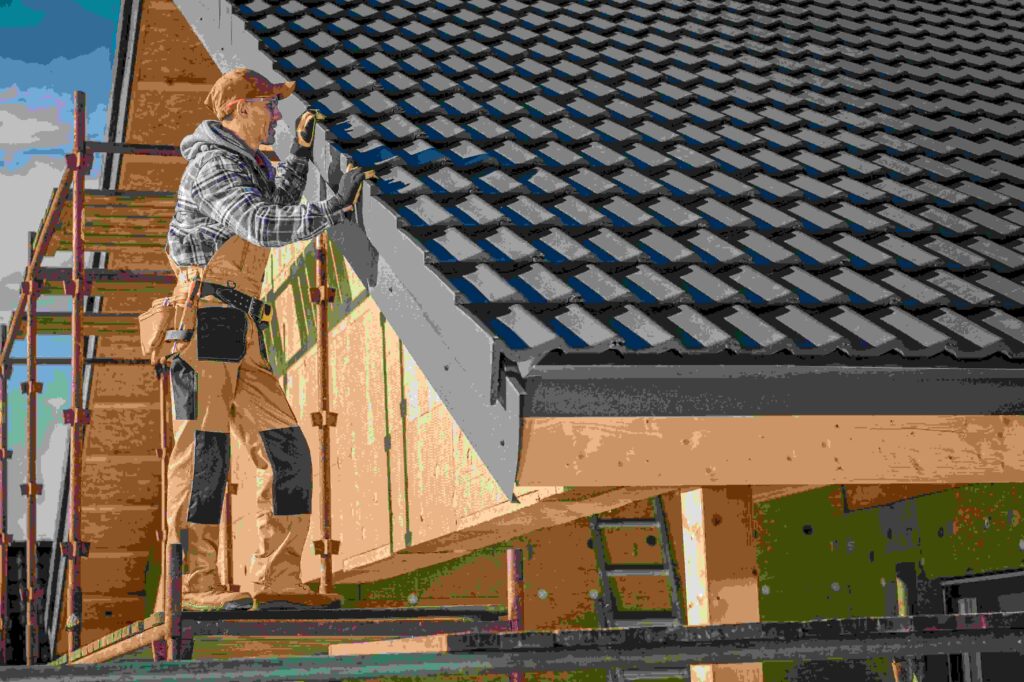
Selecting the right roofing material is crucial for building or renovating a home in Canada. The varied Canadian climate — with cold winters, hot summers, and plenty of rain and snow — requires roofs that are strong, energy-efficient, and can handle different weather conditions. Here’s a look at some of the most popular types of roofing sheets used in Canadian homes, along with the benefits and drawbacks of each.
1. Metal Roofing Sheets
Overview:
Metal roofing is popular in Canada due to its durability and ability to withstand extreme weather. Typically made from steel, aluminum, or copper, metal roofs come in sheet or shingle forms and offer a modern look.
Pros:
- Durable: Lasts 40-70 years with good maintenance.
- Weather-Resistant: Ideal for snowy or rainy areas; sheds snow easily and doesn’t rot.
- Energy Efficient: Reflects sunlight, helping to keep homes cooler in the summer.
Cons:
- Costly: Higher upfront cost than some other materials.
- Noisy: Can be noisy during heavy rain or hail, though insulation can help.
2. Asphalt Shingle Roofing
Overview:
Asphalt shingles are one of the most widely used roofing materials in Canada because they are affordable and easy to install. They have a fiberglass base covered with asphalt and mineral granules, offering good durability and a range of color choices.
Pros:
- Affordable: One of the most economical roofing materials.
- Variety: Available in various colors and styles.
- Easy Installation: Quick to install, which lowers labor costs.
Cons:
- Shorter Lifespan: Generally lasts 15-30 years.
- Weather Sensitivity: Prone to damage from high winds and extreme temperatures.
3. Composite Roofing Sheets
Overview:
Composite roofing sheets, made from recycled materials, can mimic the look of wood or slate while being eco-friendly and affordable. They are designed for durability and can withstand Canadian climates well.
Pros:
- Eco-Friendly: Made from recycled materials, reducing environmental impact.
- Versatile: Can replicate wood, slate, and other materials.
- Durable: Resistant to cracking, splitting, and warping.
Cons:
- More Expensive than Asphalt: Costs a bit more but less than authentic slate or wood.
- Limited Availability: May not be as common in some areas.
4. Polycarbonate Roofing Sheets
Overview:
Polycarbonate sheets are durable, lightweight plastic roofing often used for patios, greenhouses, and sometimes even home roofing. They come in transparent and opaque varieties, providing versatility.
Pros:
- Lightweight: Easy to handle and install, which can reduce labor costs.
- Weather Resistant: Withstands extreme temperatures, UV rays, and heavy snowfall.
- Transparency Options: Ideal for areas needing natural light, like patios or skylights.
Cons:
- Prone to Scratches: May look worn over time if scratched.
- Limited Aesthetic: Generally less suited for traditional home roofing.
5. Fiberglass Roofing Sheets
Overview:
Fiberglass roofing sheets are created by embedding fiberglass in resin, producing a durable but lightweight roofing option. They’re mainly used for sheds or home additions.
Pros:
- Lightweight and Flexible: Easy to install and ideal for non-traditional roofing.
- Weather Resistant: Resistant to rust, rot, and most weather conditions.
- Affordable: A cost-effective choice.
Cons:
- Limited Insulation: Not very energy-efficient.
- Brittle in Cold Weather: May crack in extreme cold, common in Canadian winters.
6. Clay and Concrete Tile Roofing
Overview:
Clay and concrete tiles offer durability and style, particularly suited for mild regions of Canada. They add a classic, elegant look to homes and withstand a range of weather conditions.
Pros:
- Aesthetic Appeal: Adds value and a unique look to the home.
- Longevity: Lasts up to 100 years with proper maintenance.
- Fire-Resistant: Good for areas prone to wildfires.
Cons:
- Heavy Weight: Often requires extra support for installation.
- Higher Cost: Typically more expensive than other roofing options.
7. Slate Roofing Sheets
Overview:
Slate is one of the most durable roofing materials available. Made from natural stone, slate roofs can last for a century or more with proper care.
Pros:
- Highly Durable: Known for lasting over 100 years.
- Weather Resistant: Performs well under Canadian weather conditions.
- Classic Look: Provides a natural, timeless look.
Cons:
- Expensive: Both materials and labor are costly.
- Heavy: May need additional structural support.
Choosing the Right Roofing Material
To choose the best roofing material for your home, consider these factors:
- Budget: Asphalt shingles are typically the most budget-friendly, while metal and slate can be more costly.
- Climate: Metal or composite roofing may be better suited for snow-prone regions, while tile or slate could work well in milder climates.
- Longevity: Slate, tile, and metal last longer, while asphalt shingles are suitable for shorter-term solutions.
Final Thoughts
Your choice of roofing can make a big difference in your home’s durability, appearance, and energy efficiency, particularly with Canada’s diverse climate. By understanding the strengths and weaknesses of each material, you can make a decision that keeps your home protected and looking good for years. Consult a roofing professional to ensure the best material choice for your region and specific needs.
